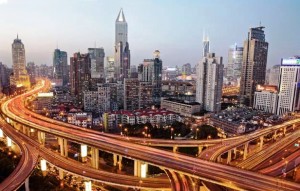With the nation’s automotive market showing some unexpected signs of weakness, nervous bureaucrats have rolled out an incentive effort loosely modeled upon America’s controversial Cash-for-Clunkers program.
After years of double-digit sales gains, what is now the world’s largest automotive market posted 14% decline in sales last month compared to April. But whether that was a temporary aberration or signs of a longer-term slowdown remains to be seen.
Either way, it is creating deep worries in a country where automotive demand has helped fuel a booming economy. And industry leaders are fretting about the billions they are spending to expand capacity to match earlier sales expectations.
The 2009 Cash-for-Clunkers allowed U.S. motorists to collect up to $4,500 for trading in their old vehicles for newer, more fuel-efficient models, ultimately generating in excess of 625,000 additional sales during what had been one of the worst years in more than a half century for the American auto industry.
Under the Chinese vehicle “early retirement” program, vehicle buyers are being offered incentives of between $1,700 and $2,800 for trading in a variety of old vehicles for new ones. Since a major portion of the Chinese vehicle market includes medium and heavy-duty trucks, the program also covers farm vehicles and buses, as well as heavy trucks.
China passed the U.S. to become the world’s largest motor vehicle market in 2009, though America still holds the lead in terms of passenger cars. But until recently, all signs pointed to a continuation of the double-digit growth that has led manufacturers like General Motors, Toyota and Volkswagen to invest tens of billions of dollars to add new models and boost their production capacity.
(Ford expects China to play a key role in helping it boost sales 50% by mid-decade. Click Here for that story.)
A slowdown in demand would be devastating to the industry, but it could also play havoc with the Chinese economy. The auto industry is one of the key sources of new employment in an economy that needs to generate millions of additional jobs annually, Sino analysts report.
But sales have been showing signs of weakness in recent months, falling in April for the first time in two years. Preliminary data suggest May was even weaker, with official announcements due later this week.

